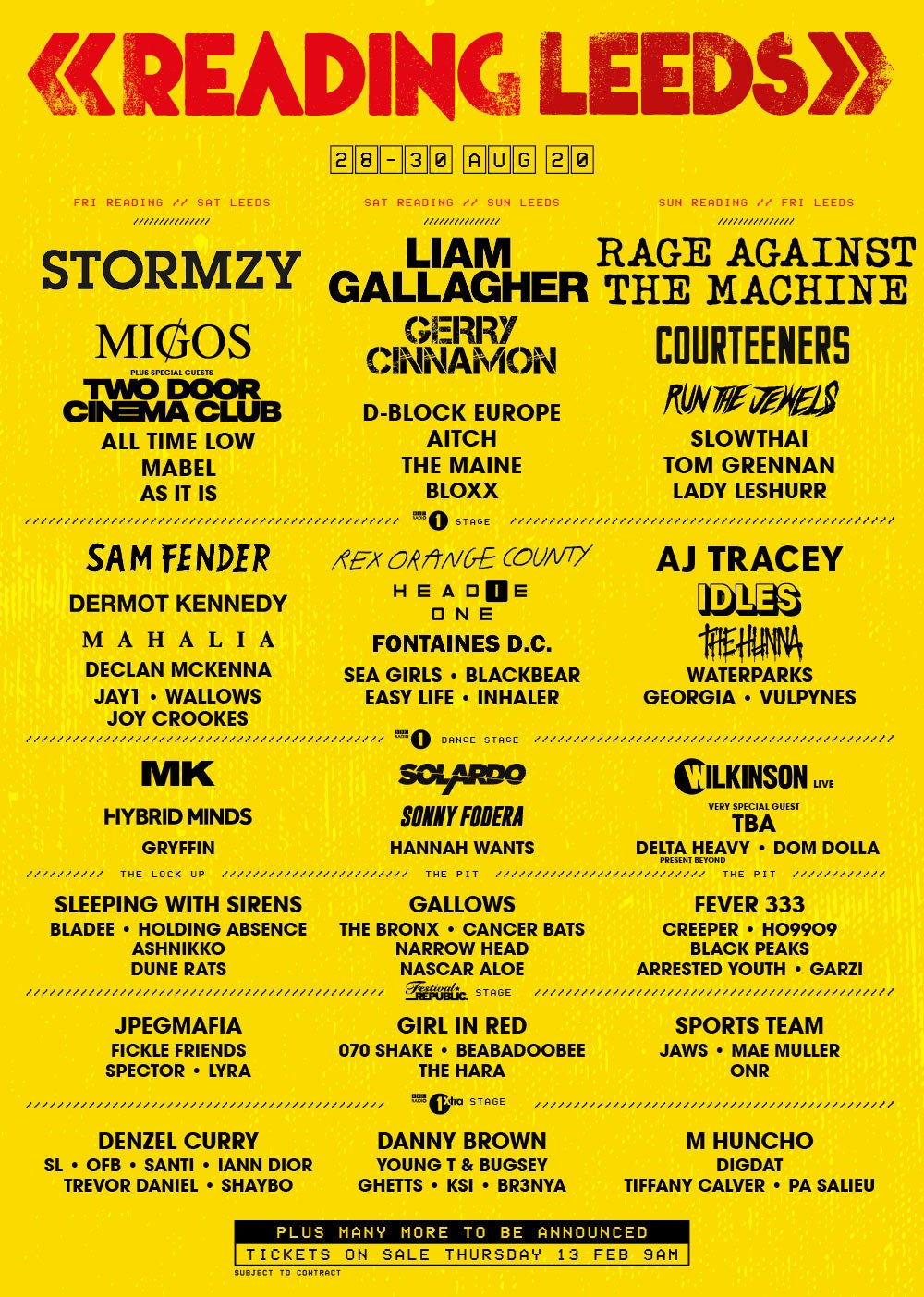The issue of female representation on festival line-ups, or the lack thereof, is very contemporary. Keychange, a Creative Europe programme supported by the European Union, reports that forty-five European-wide music festivals are working towards a 50/50 line-up: The Great Escape, Kendal Calling, Liverpool Sound City, BBC Proms, and BBC Introducing Stages are the most prominent British festivals committed to this goal. Interestingly, Reading & Leeds is not on this list.
Reading & Leeds is one of the most iconic music festivals in the world. Each year, hoards of music fans, teenagers and middle-aged adults alike, flock to Richfield Avenue and Bramham Park to experience both established and up-and-coming artists. For many, it’s an institution; a rite of passage. This year, many committed festival-goers and artists alike are asking: where are the female artists?
As is custom, many have taken to Twitter to voice their disgust. One Twitter user highlighted just how few female artists have been booked by photoshopping out all the male artists:
Radio 1 DJ Annie Mac highlighted that a line-up featuring just twenty female acts out of one-hundred-and-twenty thus far is not the message that young girls should be receiving:
Furthermore, The 1975 frontman Matty Healy also vocalised his thoughts, albeit rather passively:
The issue of female representation in the music industry is multifaceted. Institutional sexism pushes male artists to the front, denying many talented, well-deserving female and non-binary artists a platform through which to progress. Systematically denied the same opportunities as male artists, it comes as no surprise that the majority of the world’s biggest artists are male, and so, the majority of artists booked for festivals such as Reading & Leeds are male. However, this is no excuse for failing to book up-and-coming female artists. Charli XCX highlighted this institutional issue in November 2019, tweeting “i am an artist, a songwriter who’s co written multiple hits for myself/other artists, a video director, exec producer of a netflix show, a&r, i run a label, co manage 2 artists…if I was a man I’d be hailed as some sort of music industry god but as a woman I’m just – doubted”.
When it comes to booking festival acts, there are a myriad of issues to consider. An artist’s schedule; whether they have released music in the past year or are set to release music; booking fees, and visas for international artists are all factors which need to be considered. However, I refuse to believe that the organisers of Reading & Leeds Festival have, thus far, only been able to book twenty women onto their festival as a direct result of these issues. It’s impossible that all of these women were mysteriously unable to play the festival due to logistics or prior commitments. I refuse to believe that the organisers truly care about booking female acts.
To consider how lazy Reading & Leeds have been, here’s a list of fantastic female and female-led acts that released music in 2019. Moreover, it’s completely akin to the type of act Reading & Leeds would typically book.
- Lana Del Rey
- Sharon Van Etten
- Maggie Rogers
- Phoebe Bridgers
- Sunflower Bean
- Clairo
- Sigrid
- Lizzo
- Marina
- Missy Elliott
- MUNA
- Tove Lo
- Marika Hackman
- Dream Wife
- Arlo Parks
- Halsey
- Jade Bird
If that wasn’t enough to convince you, here’s a short list of female and female-led artists that have already released or are planning to release music in 2020:
- The Big Moon
- La Roux
- Grimes
- Hayley Williams
- Christine & The Queens.
The trolls will say: “no female artist could put on a show as good as Rage Against The Machine”, or “there are no female artists big enough to headline”. The last time that a female headlined Reading & Leeds was in 2014 when Paramore played. Before this, The White Stripes headlined in 2003, and even this booking can be considered half-hearted considering Jack White, a male, was the frontman. To put it bluntly: not booking female artists is lazy. Having the same male template each and every year is starting to become a bit of an insult.
Eleanor Noyce

